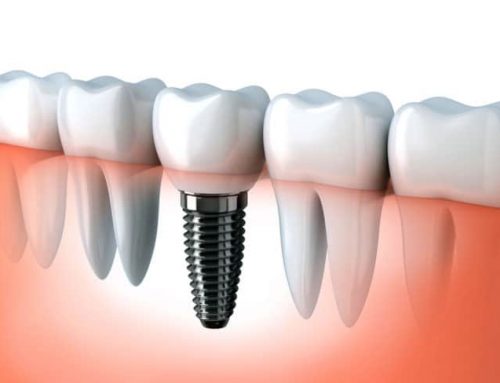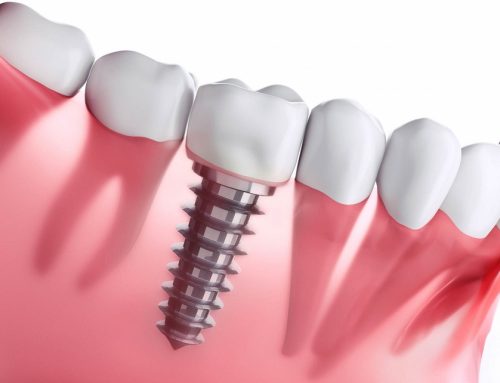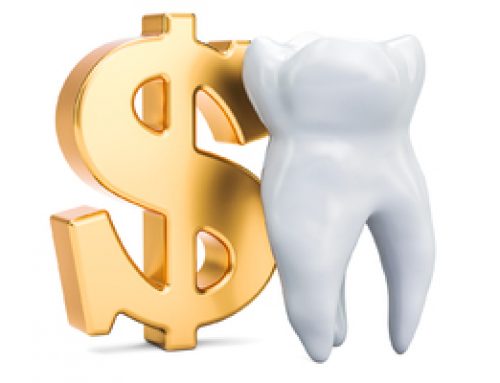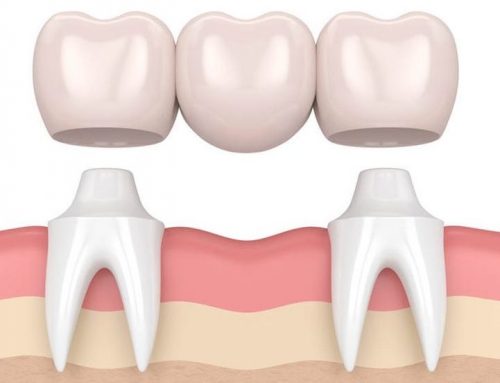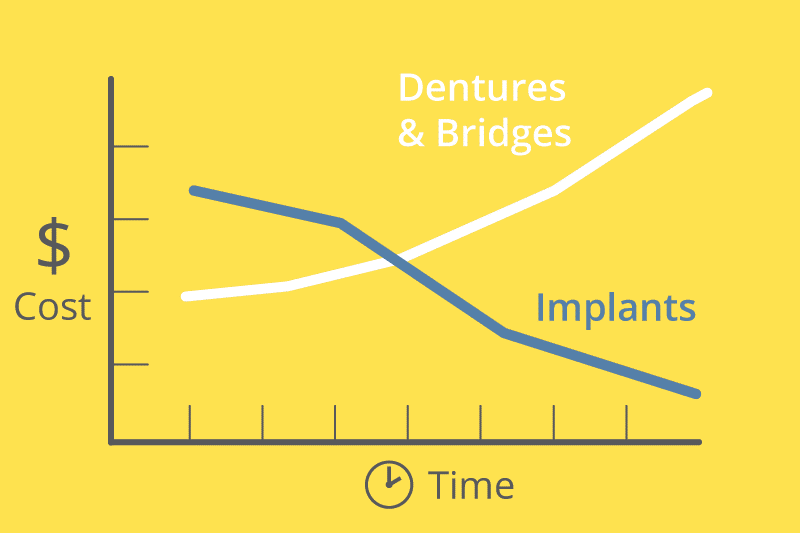 It is estimated that between 20-25% of us will need to replace missing teeth at some stage in our lives. This could be due to age and general wear-and-tear, or because of factors contributing to oral health issues such as heart conditions, diabetes, genetic factors or having poor oral health routines. You have two options for replacing either all of your top teeth, bottom teeth or both:
It is estimated that between 20-25% of us will need to replace missing teeth at some stage in our lives. This could be due to age and general wear-and-tear, or because of factors contributing to oral health issues such as heart conditions, diabetes, genetic factors or having poor oral health routines. You have two options for replacing either all of your top teeth, bottom teeth or both:
- Dentures
- Dental implants
Dental implants are the modern alternative to dentures, where a full set of teeth is secured to four dental implants in your jaw. This oral surgery procedure is more expensive than a set of dentures, so is the additional cost of dental implants really worth it?
Cost Of Dental Implants Versus Dentures
To begin with, dentures or removable bridges require much less of a financial outlay than dental implants. On average, a set of dentures may only cost around a third of the price of a set of dental implants. However, it is important to consider that dentures cost more in the long run as they need to be replaced more often. Even top quality dentures will need to be replaced every 5-10 years as they become worn down. And there are ongoing maintenance costs to be factored in too, such as fixatives, adhesives and cleaning solutions. In contrast, dental implants are considered to be a permanent teeth replacement option as their success rates are the highest possible at 98%. With proper care – which is similar to caring for natural teeth – they can easily last for 20 years or more.
Confidence Costs
There’s no denying that dentures have a certain stigma about them, which is compounded by the possibility that they could slip when you are eating, laughing or coughing. Some people find they lose confidence in social situations, particularly eating out in public. The good news is that confidence is one of the major benefits that dental implants provide. The implanted teeth are rock-solid and fully-fixed in place, so they are in no danger of moving or slipping.
Adjusting your diet to a certain extent is necessary for denture-wearers as it is harder to eat foods which require extra chewing like steak, raw carrots, apples and nuts, as well as sticky foods like dried fruit or toffee. Because these foods require extra chewing and grinding they place extra stress on the dentures and gums which can create sore spots. However, most people with dental implants find that they do not have to adjust their diet at all as the implants are strong enough to contend with even tougher red meats and raw vegetables.
Wearing dentures can be uncomfortable – some of our patients say they never get used to that “unnatural feeling” of wearing a plate, which only causes them to feel more self-conscious. This is not a concern for dental implant patients who get used to the feeling of their new teeth very quickly.
Appearance Costs
Unfortunately your jawbone will deteriorate over time without any teeth or implants in it. Dentures rest on the gums and do not provide any stimulation to the jawbone, resulting in as much as 70% of bone loss. This leads to changes in your facial features with excess skin, sagging lines and a ‘caving in’ appearance. It can be exacerbated by poorly fitting dentures too, where irritated gums can also mean irritated bone and accelerated bone loss.
After natural teeth, dental implants are the best way to support your jawbone and prevent bone loss. The implants are made from titanium which fuse with the jaw bone and act like natural tooth roots – even encouraging bone formation around them. This is a wonderful way to prevent any jawbone deterioration and maintain your facial appearance.
So yes, it’s true that as an alternative to dentures, dental implants are more expensive initially. However, in the long run they are more economical not just in monetary terms but also when considering your confidence and appearance. The one regret our ‘New Teeth On 4’ patients express is that they did not have the procedure done sooner, as many of them have trialled dentures before looking for better alternatives.

